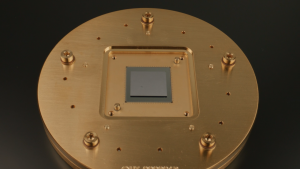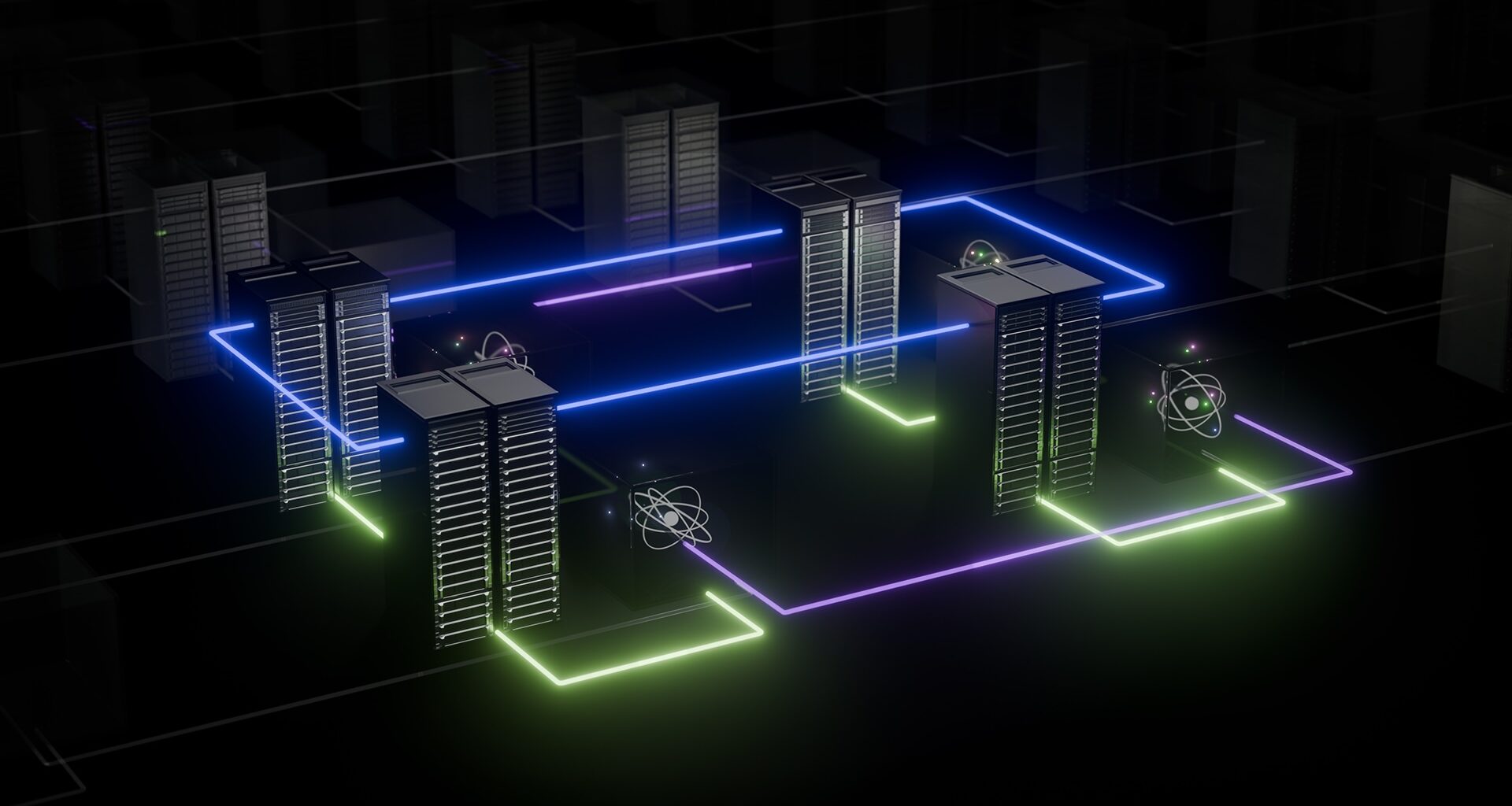In computing, the biggest breakthroughs often happen behind the scenes. You won’t see them in the latest smartphone launch or streaming app update, but their impact can shape industries, scientific discovery, and national infrastructure. HPC is one such quiet powerhouse. Now, it’s forming a strategic alliance with a headline-grabbing newcomer: quantum computing.
You may have heard of quantum computing as the science-fiction-sounding tech that promises to revolutionize everything from drug discovery to climate modelling. That may well be true, but not today, and not on its own. The real story is how quantum and HPC are beginning to work together. It’s a partnership that, while still in its early days, could change how we solve some of the world’s toughest problems.
A Brain for every task
Think of HPC as the brawn of the computing world. It’s what powers detailed weather forecasts, designs next-generation aircraft, and helps researchers simulate diseases at the molecular level. These machines, often housed in vast data centers, crunch enormous datasets with brute speed and precision.
 A quantum computer developed by Google
A quantum computer developed by Google
Quantum computing, by contrast, is more like a brain that thinks sideways. It doesn’t just compute faster, it computes differently. Instead of analyzing one solution at a time, quantum systems can explore many possibilities at once, thanks to principles like superposition and entanglement. This makes them incredibly powerful for certain types of problems, especially those involving uncertainty, complex variables, or vast potential outcomes, such as modelling molecules or optimizing supply chains.
A good analogy is this: imagine trying to find the shortest route through a maze. HPC might methodically try every path, one after another, at lightning speed. Quantum computing, on the other hand, could explore multiple paths simultaneously, collapsing the options down to the most promising route far more quickly in some scenarios.
But quantum computers are still finicky. They’re highly sensitive, expensive to build, and not yet ready for the heavy lifting HPC handles every day. That’s why, rather than replacing traditional systems, quantum computing is finding its place alongside them, offering specialized help where it’s most needed.
Bridging the divide
At this year’s International Supercomputing Conference (ISC), a noticeable shift occurred. Quantum computing was no longer treated as a sideshow. It was integrated into the main conversation, right alongside cloud computing, AI, and supercomputing infrastructure.
Much of this collaboration is still experimental. Today, many organizations simulate quantum computing using HPC systems, developing quantum-inspired algorithms to test what real-world integration could look like. In time, the vision is for quantum processors to act like specialist tools–much like GPUs, called in by HPC systems to solve tasks before handing the job back.
But building this hybrid model isn’t just about plugging in new hardware. It requires new software, new training, and a new mindset. The fields of HPC and quantum come from different worlds – engineers on one side, physicists and mathematicians on the other. Creating systems where both can collaborate effectively is a challenge. But it’s also a huge opportunity.
Closing the skills gap
One of the biggest hurdles? People. Developers who understand quantum algorithms are still rare. Those who understand how to apply them in an HPC environment are even rarer. Tools and software that can bridge both systems are only just emerging, and standards are still evolving.
 A superconducting-qubit quantum chip in package assembly developed and manufactured at the AWS Center for Quantum Computing in Pasadena, Calif. Credit: AWS
A superconducting-qubit quantum chip in package assembly developed and manufactured at the AWS Center for Quantum Computing in Pasadena, Calif. Credit: AWS
This gap could slow progress, but it also points to where investment is needed. At my firm, we’re helping clients prepare not just for the technology, but for the talent. Because understanding how to adopt and integrate quantum computing would be a strategic advantage.
Just as the shift to cloud computing a decade ago required a new generation of IT professionals, the convergence of quantum and HPC will demand a workforce that can speak both languages, an investment in future-ready skills that starts now.
Governments, industry and the innovation race
This isn’t just a private sector issue. National governments are investing heavily in quantum research, recognizing its potential for breakthroughs in national security, pharmaceuticals, climate science, and financial modelling. Public-private partnerships are accelerating, with academic institutions, startups, and tech giants all playing a role in shaping what the future of hybrid computing might look like.
Countries like the UK, Germany, and the US have announced dedicated quantum roadmaps, and forward-thinking businesses are already exploring use cases. For example, in energy and logistics, quantum algorithms could soon help schedule cargo routes more efficiently, reducing emissions and costs simultaneously. In medicine, quantum models could unlock faster drug development by simulating how molecules behave, something classical computing can’t do at scale.
Strategy, not hype
It’s easy to compare quantum computing to artificial intelligence, but the comparison is misleading. AI has exploded because it builds on vast data pools and can improve quickly through training. Quantum computing, on the other hand, depends on delicate hardware advances that don’t follow the same rapid pace.
This doesn’t make quantum less important. It just means its path will be slower, more specialized, and likely more profound in the long run. Organizations looking to capitalize on this future should begin laying the groundwork now, exploring where quantum fits, building hybrid-ready infrastructure, and encouraging teams to think beyond silos.
Because when quantum computing is ready, it won’t announce itself with fanfare. It will quietly embed itself into the systems we already rely on and radically expand what those systems can do.
The quiet revolution
The integration of quantum with HPC marks the start of a subtle but significant shift. It’s not a race to replace one system with another, but a move toward smarter, more adaptive computing, where different technologies collaborate, each doing what they do best.
At my firm, we’re helping organizations navigate this transition, preparing strategies that are ambitious yet grounded in reality. Because in the world of performance computing, the most important breakthroughs aren’t always the loudest. Sometimes, they come from knowing when two different worlds are better together.
Looking ahead
The road to hybrid quantum-HPC systems won’t be easy or fast. But it will be worth it. As industries grow more reliant on simulation, modelling, and data-driven insights, the need for new computing paradigms becomes clearer. Hybrid systems powered by the speed of HPC and the finesse of quantum may become the standard architecture for solving humanity’s next generation of challenges.
For now, the best course is strategic readiness: build the skills, invest in flexible infrastructure, and foster collaboration between disciplines. Because when the future arrives, it won’t wait for those still sitting on the sidelines.

About the author: Owen Thomas is the Co-Founder, Senior Partner, and HPC Industry Lead for Red Oak Consulting, an independent HPC consultancy based in the UK. Thomas brings a wealth of experience spanning in excess of 35 years within the world of HPC. Recognized and entrusted throughout the HPC industry, Thomas has been instrumental on advising strategy, supporting procurements and managing hands on highly technical projects from initiation to completion. Prior to setting up Red Oak Consulting in 2004, Thomas worked for a number of large blue-chip organizations across the HPC sector.

